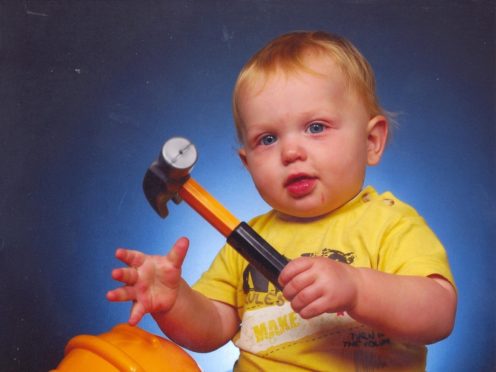As a writer, you need to be prepared to wear another person’s skin: discover the paper thin patches; experience the pain of the raw, infected places where wounds remain unhealed.
At its most powerful, it goes beyond empathy to a place of absorption rather than reflection. In the most traumatic cases, though, the mind self-protectively turns away from the pain and for me, that was never more true than when dealing with bereaved parents.
This week, ‘Jack’s Law’ came into force, entitling any bereaved parent to two weeks’ statutory paid leave. No parent gets over the loss of a child in two weeks, but in the terrible tsunami of events surrounding death it is, at least, a lifebuoy to keep parents afloat.
There is a particular poignancy in the timing, though, given last week’s tragic death of 13-year-old Londoner, Ismail Mohamed Abdulwahab, from coronavirus. Right now, parental leave means nothing: Ismail’s family were forced into isolation and missed his funeral, experiencing the trauma of being locked at home while four strangers in protective suits lowered his body into the ground.
There have been so many causes – so many nuances – to the parental grief I have encountered as a journalist. Illness, when the overwhelming emotion was impotence, and in the case of coronavirus bewilderment at the speed; suicide, when there was unbearable guilt and regret; accident, when the sense of futility threatened to engulf everything; and murder when anger mixed with grief in a dark, potent cocktail. As a writer, you may try to inhabit the skin, but as a parent, inevitably you imagine the loss of your own child and wriggle out of it.
Jack’s Law prompted thoughts of all the bereaved parents I have interviewed, including Sara Payne, whose daughter Sarah was murdered by paedophile Roy Whiting. Grief had given Sara such emotional articulacy that despite her quietness, her presence felt substantial. We spoke, I remember, about a little note Sarah had written, the kind of note most parents recognise. Sarah’s message said she loved her mum, “so, so, so much”. It captured a child’s voice so clearly that I heard the voice of my own little girl, who was the same age as Sarah would have been.
Young children’s vulnerability perhaps makes us empathise more with their loss. But losing a child of whatever age is, as one Swiss study pointed out, one of life’s most devastating experiences because it is contrary to the natural order. Jack’s Law covers only parents whose child is under 18, an obvious inadequacy. Your child never stops being your child, even when they stop writing notes telling you that you are the centre of their universe.
There was in that story of Sarah’s note a lasting lesson, a lesson that explains why Jack’s Law is so necessary. A lesson about acknowledging the power of emotion in the increasingly relentless pace of modern life. A famous American psychology study compared a group of winners of the Illinois state lottery with a group of severely disabled victims of catastrophic accidents. Each group was asked to rate the small pleasures of life and guess what? The disabled victims were happier than the lottery winners about life’s small pleasures. Apparently, even good fortune becomes ordinary to our sated senses but when threatened with loss – as we are right now – we grab the ordinary as extraordinary.
It sometimes feels that as we pound our treadmills, we have forgotten how to live. Forgotten what’s important and what lasts. Forgotten not only how to relish the beauty of life but how to empathise with the tragedies of it. Other people’s grief is inconvenient. ‘Success’ is all-important – and empathy so time-consuming. We can’t take time off when we’re sick because we need to be indispensable; can’t switch off our phones; can’t take time to talk, can’t take a holiday because the world will fall apart if we stop; can’t work less hours because we’ll have to drive a smaller car. Coronavirus illustrates the lie of that, forcing us to reappraise.
So, I welcome the implementation of Jack’s Law, because when we return to the harshness of our normality, it will give bereaved parents the time that they desperately need, whatever their circumstances. And because in a seemingly ever-diminishing world, where emotions are so suppressed, the law is recognising that some things are more important than our convenience, and life is worth living not just enduring.
After interviewing Sara, I returned home from London tired and subdued. It was after my children’s bedtime but I wanted to see them sleeping safely. In my office, I saw a little note from my daughter propped to my keyboard. The words were identical to those earlier in the day and all these years later, the words and the timing still send a shiver through me. “I love you so, so, so much.” This time, instead of hearing my daughter in Sarah’s words, I heard Sarah in my daughter’s. Words of two little girls, one here and one gone, who in their childish way reminded me of the essence of life.

